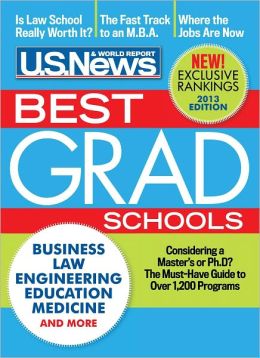 U.S. News & World Report recently released its annual rankings of the best graduate programs at U.S universities. This year, the magazine ranked 194 accredited law schools in the United States.
U.S. News & World Report recently released its annual rankings of the best graduate programs at U.S universities. This year, the magazine ranked 194 accredited law schools in the United States.
Of the six law schools at historically Black universities, Howard University ranked the highest. Howard was rated as the 126th best law school among the 194 accredited schools.
U.S. News choose not to assign numerical rankings to law schools that did not finish in the top 145 places. The other five law schools at historically Black universities all fell in this range of the 146th to 194th best law schools. These law schools are at Florida A&M University, Texas Southern University, North Carolina Central University, Southern University, and the University of the District of Columbia.











You know how that works. Unless it benefits the dominant majority if it is Black it is considered to be inferior. What else is new?
Us HBCU products must get out and prove that were are as competent as anyone else.
Science and Technology are slightly more objective.
No?
If nothing changes, nothing changes!
Journal: Please publish data on Black law school alumni at HBCU Law Schools who took, and passed, bar exam(s)within one-, two-, and three-years of their graduations; and the number of these individuals actually practicing law after those intervals. Such numbers are more indicative of the so called “quality”, or lack thereof, of HBCU Law Schools.
….Black law graduates at HBCU law schools…
This article has some relevance for your question: even the “top” HBCU law school, Howard, is in danger of losing ABA accreditation due to barbpassage rates below the ABA standards. http://abovethelaw.com/2013/08/whats-more-racist-the-trouble-with-low-bar-passage-rates-at-historically-black-law-schools/ Only one of the 5 HBCU law schools has a rate that doesn’t subject its ABA accreditation to that risk. (For those unaware, ABA accreditation of a law school means its graduates are entitled to sit for the bar exam of any state without first passing the “First Year Law Students’ Exam”; there are other advantages to such accreditation as well). In response to this problem, HBCU law schools are asking the ABA to loosen the standard, rather than focusing on how to better prepare their students to pass an exam that is required for their degrees to pay off in legal careers.